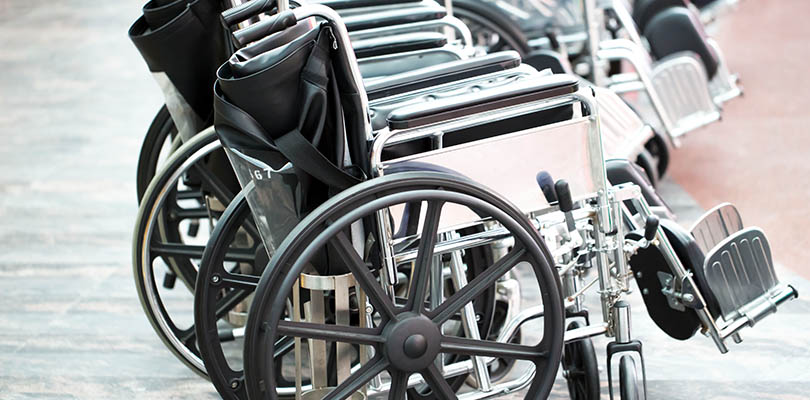The Complications of Sleep Paralysis
Each day, people look forward to the nighttime as an opportunity to receive the restoration and rejuvenation sleep has to offer. When they wake in the morning, they feel refreshed, energized, and ready to face every challenge of another day.
For some, though, the nighttime is associated with fear, anxiety, and uncertainty. These people do not fear sleep, but they do fear sleep paralysis.
What Is Sleep Paralysis?
There are not many people familiar with sleep paralysis because:
- The condition is unusual and not well understood by non-sleep specialists
- People with the condition are reluctant or embarrassed to discuss their symptoms
- Medical professionals lack training and education on the topic
Sleep paralysis is a sleep disorder. Simply put, someone with the condition will suddenly wake from a deep sleep while being unable to move any parts of their body.
If you are having this type of paralysis, you are aware of your situation and surroundings. Your immediate physical health is not in danger because basic functioning is not impacting but moving and speaking will be impossible.
An episode of paralysis can last for just a few seconds or up to two minutes. Each episode will end on its own after the period of time has passed. This sleeping disorder might also end when you are touched by someone else.
The period of paralysis is associated with strong feelings of powerlessness, worry, and panic. Some people will experience hallucinations during sleep paralysis.
Sleep Paralysis Hallucinations – A Symptom of Sleep Paralysis
Hallucinations are faulty sensory perceptions. During a hallucination, you could see, hear, feel, smell, or taste things that are not present. You could also have a very intense feeling you are dreaming while you are awake.
Hallucinations are usually connected to severe substance abuse and mental health conditions like schizophrenia, but this is not the case with this type of sleep disorder.
Other sleep paralysis symptoms include:
- A sense that someone is in the room
- Hearing wind, waves crashing, or a loud buzzing noise
- The feeling of heaviness or tightness in your chest
- The feeling of being chocked or suffocated
Linking Narcolepsy and Sleep Paralysis
Narcolepsy is another type of sleep disorder where the person will experience uncontrollable sleepiness and periods of daytime sleep. A person with narcolepsy could be in the middle of a conversation before suddenly falling asleep midsentence.
About half of people with narcolepsy will have sleep paralysis as a symptom. Not all sleeping disorder paralysis is linked to narcolepsy, though.
If your paralysis is not marked by sudden bouts of sleepiness during the day, you have isolated sleep paralysis or recurrent isolated sleep paralysis (ISP). This indicates the condition is a separate disorder rather than being a symptom of another diagnosis.
REM Sleep and Sleep Paralysis
This sleeping disorder happens because of abnormal transitions in the sleep cycle. The shift from rapid eye movement (REM) sleep to wakefulness is disrupted and blurred.
REM sleep is the stage of the sleep cycle where people dream. During REM sleep, the body is paralyzed to prevent you from acting out your dreams. Imagine the danger that would come from you running from your bedroom to escape the angry mob from your dreams.
In sleep paralysis, the atonia – term for muscle weakness – from REM sleep persists to wakefulness.
Am I a perfectionist or do I have OCD? OCD and perfectionism are two conditions which share similar signs and symptoms despite being quite different.
Types of Sleep Paralysis
People with symptoms of sleep paralysis will fit into one of three categories based on the frequency of ISP:
- Severe ISP – events occurring once a week or more
- Moderate ISP – events occurring at least once per month
- Mild ISP – events occurring less than once per month
Possible Sleep Paralysis Causes
Narcolepsy is a clear cause of sleep paralysis, but the causes of ISP are less obvious. Medical risk factors that might cause ISP include:
- Hypertension
- Hypersomnia – sleeping too much
- Too little sleep
- A poor sleep schedule
- Undesirable sleeping position
- Sleep apnea
- Alcohol use
- Wilson’s disease – an accumulation of copper in the body
Additionally, there are several mental health factors influencing this type of sleep disorder including:
- Trauma and posttraumatic stress disorder (PTSD)
- Anxiety and panic disorder
- Recent life changes and higher stress
Possible Consequences of Sleep Paralysis
There is not a physical danger to sleep paralysis, but those with the condition understand the signification impact it can have on their mental health and overall well-being. If you are fearful of having an ISP episode, you might avoid sleep or self-medicate with alcohol and other drugs in an attempt to reduce your risk.
Of course, increased stress only makes paralysis more likely.
Sleep Paralysis Treatment
Like with other conditions, the first step towards ISP treatment is an accurate diagnosis from a medical professional completed by tracking symptoms and excluding the presence of other conditions. Once a diagnosis is established, treatment can begin.
Treatment will be separated into categories based on possible risk factors.
Improving Sleep Hygiene
By excluding alcohol, setting a normal sleep schedule, and adjusting your sleep position, you could greatly reduce your risk of ISP. Along the way, be sure to treat other conditions like sleep apnea and high blood pressure.
Targeting Mental Health
Since anxiety, stress, and PTSD contribute to sleep paralysis, treating and effectively managing these mental health concerns will result in the reduced occurrence of ISP. Meeting with a team of mental health experts can improve your well-being and happiness while putting this sleep disorder in the past.
Utilizing Medications
Several medications have been effective in treating nighttime paralysis. Be sure to discuss options with a trusted prescriber to see which would be best for you.
Stay patient. It could take several medication trials to find a good fit, but once you do, the benefits of a good night’s sleep without worry of this sleep disorder will be worth it.







